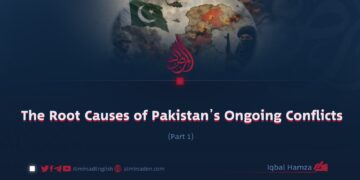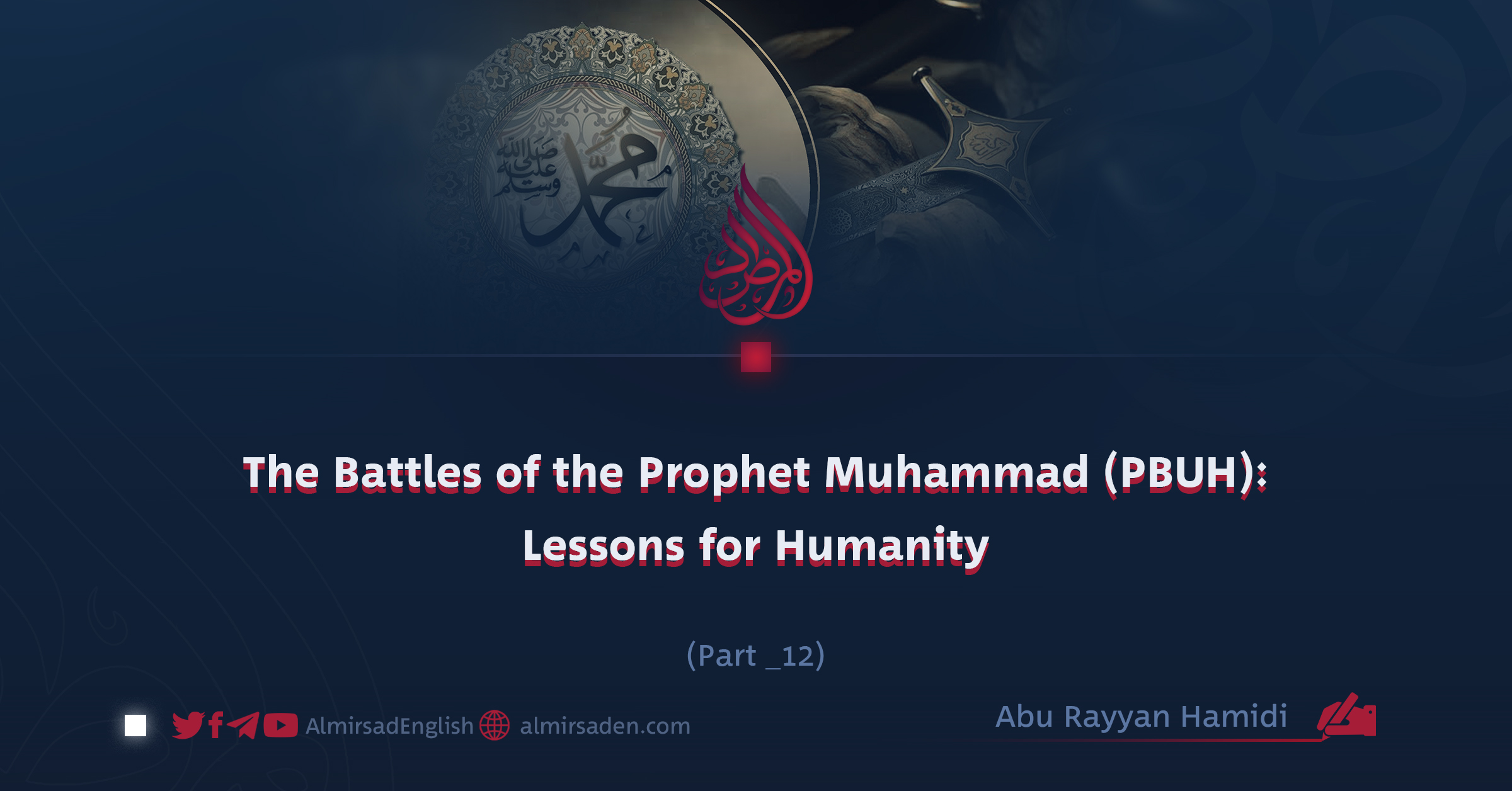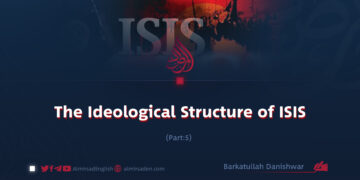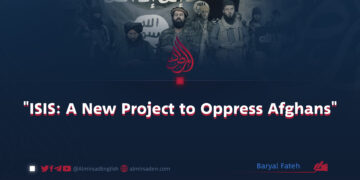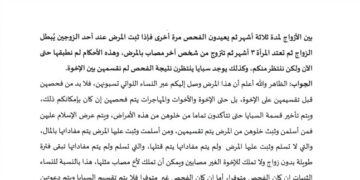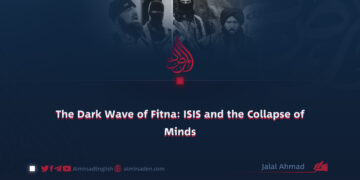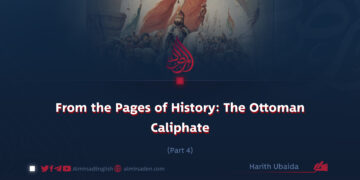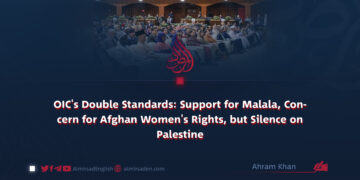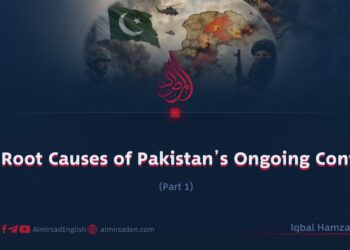Part 12
Author: Abu Rayyan Hamidi
The Flight of Iblis from the Battlefield
The army of disbelief was not only composed of men but was also accompanied by Iblis and his unseen hosts. Iblis had assumed the form of Surāqah ibn Mālik, while his forces appeared in the likeness of the Banu Mudlij tribe. This sinister deception was among the reasons why the Almighty Lord sent successive waves of divine reinforcements to the Muslims: first a thousand angels, then two thousand more, and finally an additional two thousand, making a total of five thousand angels who descended to support the believers.
When Iblis caught sight of the angelic forces approaching from the heavens, he was overwhelmed with fear and fled the battlefield. Harith ibn Hisham pursued him, thinking he was truly Suraqah, but Iblis struck him and broke free. The polytheists called out, “Suraqah! Where are you going? Did you not pledge to stay with us until the end?”
He replied, “I see what you do not see. I fear Allah, the One who is severe in punishment.” With that, he disappeared from the battlefield, abandoning those he had deceived.
The Arrogance of Abu Jahl and the Complete Collapse
As the tide of battle turned against the Quraysh, Abu Jahl, their arrogant leader, attempted to salvage the disintegrating ranks of his army. With haughty defiance, he cried out, “The flight of Suraqah and the deaths of ‘Utbah, Shaybah, and Walid must not lead to our defeat!” He tried to incite courage in his men, but no amount of worldly effort could withstand the divine support granted to the believers.
At that point, the disbelievers were being slain. Some were captured by the Muslims and by the angels sent from the heavens, while others fled in terror. On the Muslim side, fourteen companions attained martyrdom: six from the Muhajirun (Emigrants) and eight from the Ansar (Helpers).
When the battlefield of Badr bore witness to the decisive Muslim victory and the collapse of the pagan army, the Messenger of Allah (PBUH) sent Abdullah ibn Rawahah and Zayd ibn Ḥāritha to Madinah to announce the glad tidings of triumph.
The Testimony of Sa’ib ibn Abi Hubaysh
During the caliphate of ‘Umar ibn al-Khattab (RA), a companion named Sa’ib ibn Abi Hubaysh al-Asadi would recount a remarkable incident from Badr:
“When the Quraysh suffered defeat at Badr, I too was among the fleeing army. Suddenly, I was seized by a tall, fair-skinned man on horseback who bound me with a rope. Later, when ‘Abd al-Rahman ibn ‘Awf came, he found me tied and asked, ‘Who captured this man?’ No one answered, so he took me to the Messenger of Allah (PBUH), who asked, ‘Who tied you up?’ I replied, ‘I do not know,’ hesitant to narrate the full story. The Prophet (PBUH) then said, ‘He was captured by an angel.’ He then instructed ‘Abd al-Rahman, ‘Take care of your prisoner.'”
Sa’ib later embraced Islam. This event serves as a powerful reminder of the unseen divine assistance granted to the believers at Badr. It was this supernatural aid that broke the back of the Makkan army. Seventy disbelievers were killed, another seventy taken captive, and the remainder fled the battlefield in confusion, resembling the chaos of the Day of Judgment as each soul cried out for itself in sheer panic and despair.
The Killing of Abu Jahl
ʿAbd al-Raḥmān ibn ʿAwf (RA) narrated:
“During the battle of Badr, I stood in the ranks when two young boys came and stood on either side of me. They said, ‘Uncle! Where is Abu Jahl?’ I asked, ‘Why do you ask?’ They replied, ‘We have heard he insults the Messenger of Allah (PBUH). By Allah, if we find him, we will not leave him until we kill him or are martyred trying.'”
Later, ‘Abd al-Rahman saw Abu Jahl and pointed him out. The two youths rushed toward him and launched their attack, striking at the man the Prophet (PBUH) referred to as “the Pharaoh of this Ummah.”
One of the boys was Mu‘adh ibn ‘Amr ibn al-Jamuh, who recounted:
“The polytheists believed that reaching Abu al-Hakam (Abu Jahl) was impossible, as he was surrounded by elite guards. I waited for the right moment, then leapt upon him and struck his leg, severing it at the calf. At that moment, his son ‘Ikrimah struck me, cutting off my hand. My arm hung by a thread of skin, but I ignored it and continued fighting. Only when the pain intensified did I sever it completely and throw it aside.”
His companion Mu‘awwidh soon arrived and struck Abu Jahl a fatal blow, leaving him gravely wounded yet still breathing. Mu‘awwidh continued to fight bravely until he too was martyred.
The Death of a Tyrant and the Prophet’s Declaration
After the battle, the companions searched for Abu Jahl. It was ‘Abdullah ibn Mas‘ud (RA) who finally found him, mortally wounded yet still clinging to life. Ibn Mas‘ud placed his foot on his chest and severed his head from his body.
Thus ended the life of one of Islam’s fiercest enemies, the one who had plotted relentlessly against the Prophet (PBUH) in Makkah, harming the believers with both his tongue and his sword. His words were like the blows of a dull, poisonous blade, intended only to wound and destroy.
When his head was brought to the Prophet (PBUH), he exclaimed three times:
“By Allah, besides whom there is no deity!”
Then he declared:
“Allahu Akbar! Praise be to Allah who fulfilled His promise, supported His servant, and defeated the confederates alone. Now take me to his body.”
When he reached Abu Jahl’s corpse, he said:
“Indeed, this was the Pharaoh of this Ummah.”













